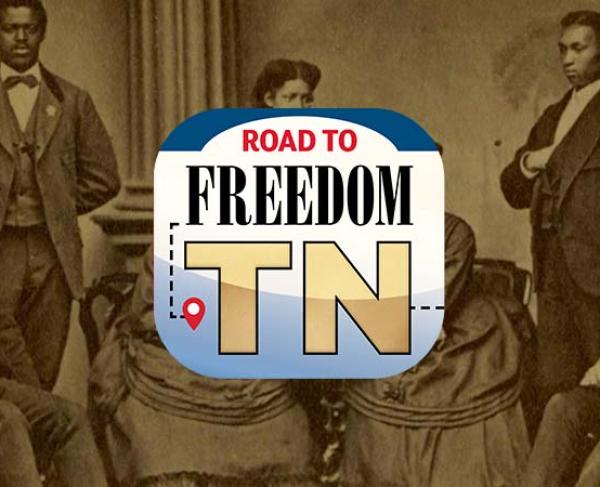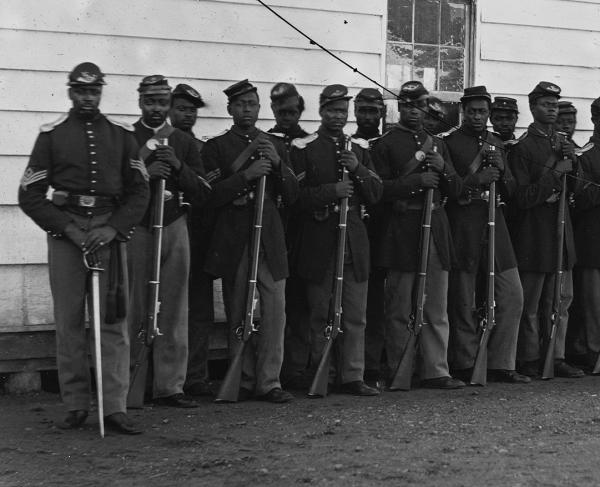Fort Hill at Waverly
Tennessee
201 Fort Hill Road
Waverly, TN 37185
United States
This heritage site is a part of the American Battlefield Trust's Road to Freedom: Tennessee Tour Guide app, which showcases sites integral to the Black experience during the Civil War era. Download the FREE app now.
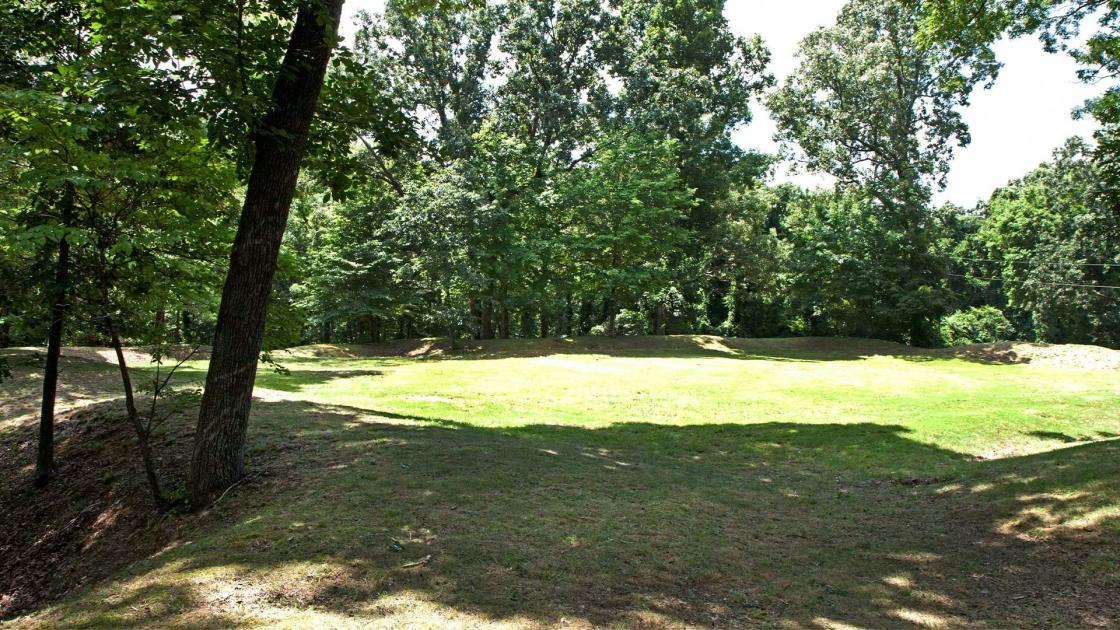
Constructed and defended by both United States Colored Troop (USCT) and white regiments, Fort Hill protected the Nashville and Northwestern Railroad (N&NWRR). The railroad was a key link in the supply chain fueling Union victories in Tennessee, Alabama, and Georgia in 1864.
With the Cumberland River flow only sufficient for freight transport from February to May, and the privately-operated Louisville and Nashville Railroad already disrupted by Confederate attacks, extending the unfinished N&NWRR as a military railroad west to the Tennessee River became urgent. The 12th and 13th USCT regiments, drawing primarily on self-emancipated men from Middle Tennessee, accomplished much of this mission working under white engineers and alongside civilian Black laborers pulled from “contraband” camps behind Union lines.
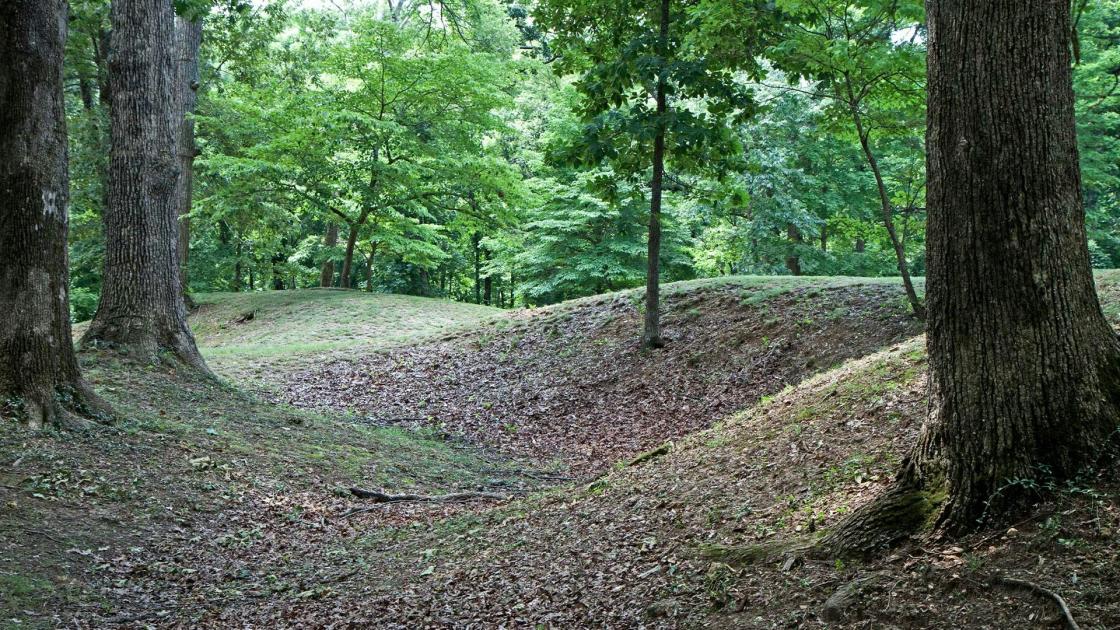
By October 1863, a few companies of the 13th USCT were already working at the railhead in Kingston Springs building trenches, guarding survey parties, and foraging livestock feed. Soldiers from the 13th also dug cuts, laid track, built bridges, and constructed fortifications. They moved west with the construction through country “full of the enemy” who harassed the soldiers daily and discouraged recruits from reaching the Union camps and filling their ranks.
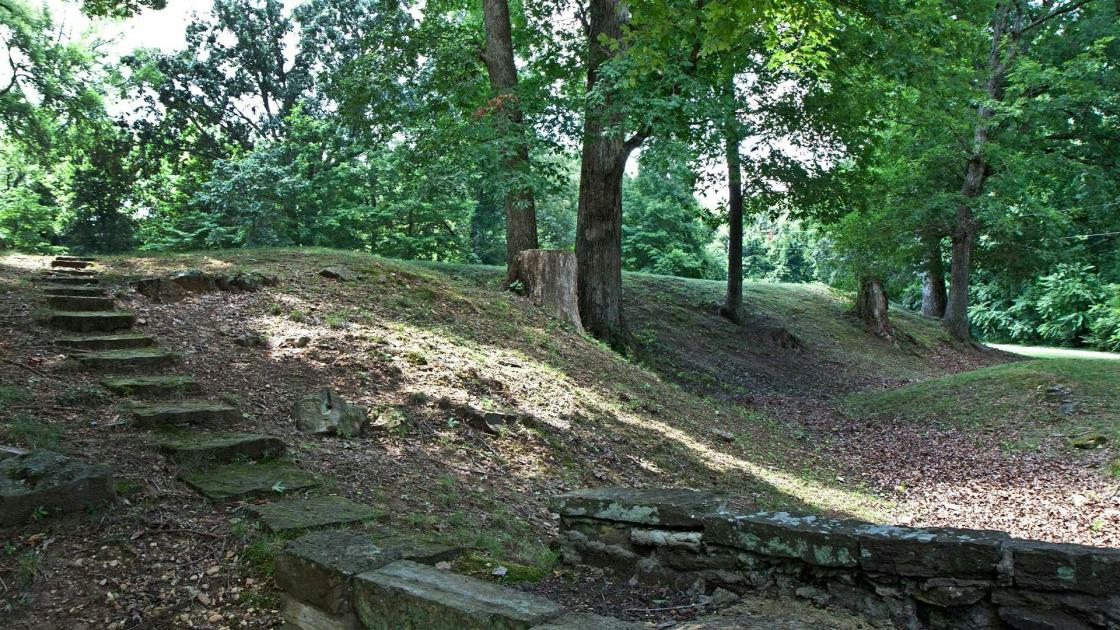
That winter, joined by soldiers from the 12th USCT, 8th Iowa Cavalry, and 1st Kansas Battery, the 13th USCT built this earthen fort. It served as the 13th USCT’s headquarters to counter these continued attacks and guard the western end of the line, which opened from the Tennessee River to Nashville on May 10, 1864. General Sherman later wrote of his supply network: “…the Atlanta Campaign was an impossibility without these railroads; and only then because we had the men and the means to to defend them.”
This well-preserved fort, the adjacent museum, and the railroad following the original N&NWRR right-of-way in the valley below connect us to the Road to Freedom.
